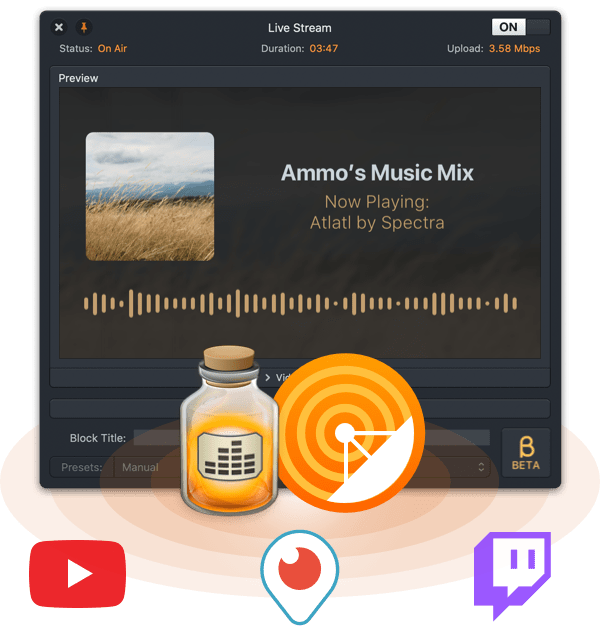


HardenedBSD supports non-Cross-DSO CFI in base for 12-CURRENT/amd64 and has it enabled for a few individual ports. The term “non-Cross-DSO CFI” means that CFI is enabled for code within an application’s codebase, but not for the shared libraries it depends on. Supporting non-Cross-DSO CFI is an important initial milestone for supporting Cross-DSO CFI, or CFI applied to both shared libraries and applications. This article discusses where HardenedBSD stands with regards to Cross-DSO CFI in base.
AUDIO HIJACK 3 MANUAL FULL
We have made a lot of progress, yet we’re not even half-way there.īrace yourself: This article is going to be full of references to “Cross-DSO CFI.” Make a drinking game out of it. )ĬFI requires compiling source files with Link-Time Optimization (LTO). I remembered hearing a few years back that llvm developers were able to compile the entirety of FreeBSD’s source code with LTO. Compiling with LTO produces intermediate object files as LLVM IR bitcode instead of ELF objects. In March of 2017, we started compiling all applications with LTO and non-Cross-DSO CFI. This also enabled ld.lld as the default linker in base since CFI requires lld. Commit f38b51668efcd53b8146789010611a4632cafade made the switch to ld.lld as the default linker while enabling non-Cross-DSO CFI at the same time.īuilding libraries in base requires applications like ar, ranlib, nm, and objdump. In FreeBSD 12-CURRENT, ar and ranlib are known as “BSD ar” and “BSD ranlib.” In fact, ar and ranlib are the same applications. One is hardlinked to another and the application changes behavior depending on arvgv ending in “ranlib”. The ar, nm, and objdump used in FreeBSD do not support LLVM IR bitcode object files.


 0 kommentar(er)
0 kommentar(er)
